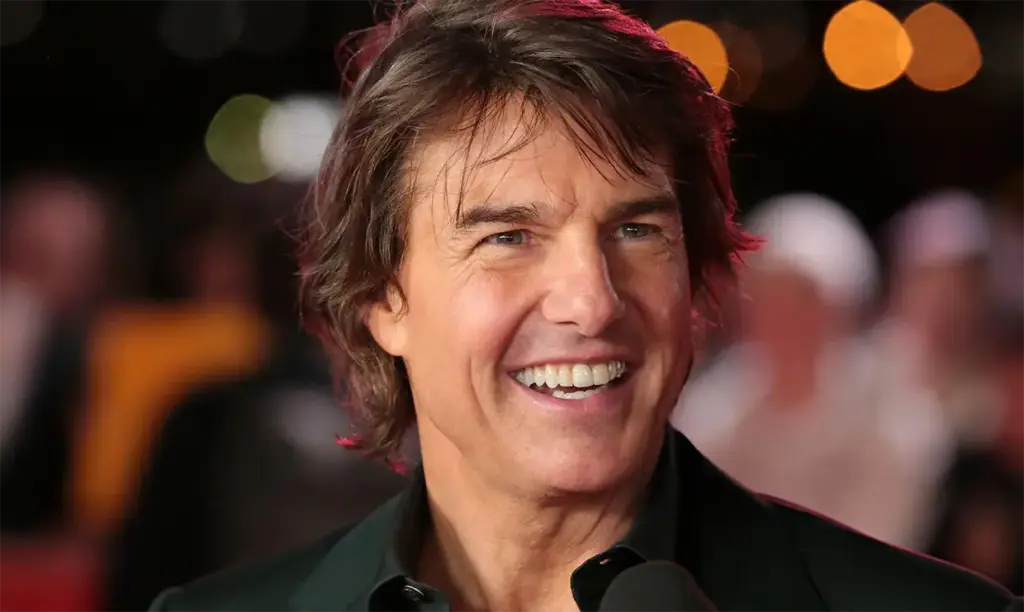Type and hit Enter to search
Experts in aesthetic surgery, dermatology, and beauty bring you the latest trends, research, and advice to help you make informed decisions about your appearance and health.
A web platform dedicated to aesthetic surgery, dermatology, and beauty, where expertise meets innovation, and your desires and needs become our mission. In a world where appearance and health go hand in hand, our platform leads the revolution, delivering the latest trends, research, and expert advice directly to you.
Our team consists of highly skilled professionals in the fields of aesthetic surgery and dermatology, committed to providing reliable information and guidance that will help you make informed choices about your appearance and well-being. We understand that every individual has unique needs and desires, which is why we approach each person with the utmost care and professionalism.
Powered by Aestetica Web Design © 2024
Welcome to Hollywood, where the lights are bright, the drama is endless, and, apparently, the ketamine is unmarked and deadly. Enter Jasveen Sangha, the so-called "Ketamine Queen" of North Hollywood, whose illegal activities have added a tragic chapter to the saga of Matthew Perry. Forget about glamorous premieres—this is the underbelly of fame, where addiction and crime intersect in devastating ways. Who is 'Ketamine Queen'?
Jasveen Sangha and Matthew Perry’s Overdose
To say that Hollywood is a land of glittering dreams and catastrophic downfalls is like saying water is wet. But no one ever quite expects their favorite sitcom star, the guy who made them laugh through their awkward teenage years, to fall prey to the deep, dark underbelly of Los Angeles. Yet here we are, unraveling the twisted threads that tie Jasveen Sangha, a drug dealer with a fondness for luxury and illicit substances, to the tragic overdose death of Matthew Perry, a man who once represented all things witty, charming, and sarcastic on Friends.
Who is ‘Ketamine Queen’?
Now, who exactly is Jasveen Sangha? Oh, you know, just your average, everyday, run-of-the-mill North Hollywood drug dealer—if your idea of “average” involves operating a ketamine empire while jet-setting between luxury resorts. Nicknamed the “Ketamine Queen,” Sangha didn’t earn her regal title by hosting garden parties and sipping tea. No, her reign was built on selling vials of ketamine and other substances from her North Hollywood “stash house,” a term that sounds like a place you might store extra shoes, but is far more nefarious.
Her drug operation wasn’t your amateur-hour backyard business either. Sangha used encrypted messaging apps like Signal (because of course she did) to coordinate sales with clients. Imagine it: you’re not texting about brunch plans, you’re haggling over the price of unmarked glass vials of ketamine. “High quality,” Sangha would boast to her buyers, as if she were discussing a bottle of fine wine. Except, instead of a pleasant buzz, this particular vintage had the potential to kill (Justice.gov) (TheWrap).
Now, in all fairness, it’s hard not to be curious about someone who can comfortably flaunt Van Cleef & Arpels jewelry while simultaneously running a drug operation out of her home. Talk about a woman who can multitask! She didn’t just stick to selling ketamine either—there was meth, prescription drugs like Xanax, and more. Honestly, if there was a drug-themed version of The Home Shopping Network, Sangha would have been the star of the show. Unfortunately, her empire wasn’t built on QVC, but rather on tragedy (TheWrap) (India Today).

Matthew Perry: A Victim of the Underworld
But let’s not lose sight of the bigger picture here: Matthew Perry. Yes, the Matthew Perry, who charmed the world with his quick wit as Chandler Bing, the lovable, sarcastic guy who could always lighten up a room. He was that friend you could count on, at least on TV. In real life, though, Perry’s struggles with addiction were no laughing matter. His battle with alcohol and prescription drug abuse was well-documented, but by 2023, the world believed he had turned a corner, seemingly stable and sober (Justice.gov) (India Today).
Until October 28, 2023, when Perry was found dead in the hot tub of his Los Angeles home. It wasn’t just the warm water that led to his demise—it was the ketamine in his system, a dangerous cocktail that knocked him out and caused him to lose consciousness. His death certificate listed drowning as the cause, but the real culprit? The drugs that coursed through his veins, drugs he had trusted to help him escape, but that ultimately took his life.
Enter Jasveen Sangha. Authorities allege that she was the one who supplied the ketamine that ended up killing Perry. According to prosecutors, Sangha sold 50 vials of the substance for a cool $11,000, a small fortune exchanged for what turned out to be Perry’s death sentence (TheWrap). Her connection to Perry came through an intermediary—Erik Fleming, a name you’ll want to remember if you’re keeping track of all the players in this twisted saga. Fleming, who is also facing charges, delivered the ketamine to Perry’s assistant, Kenneth Iwamasa, who then injected the actor. And there you have it, the tragic chain of events that led to the end of one of Hollywood’s brightest stars (Justice.gov) (India Today).
A Glimpse into Jasveen Sangha’s Lavish Lifestyle
Now, let’s not forget, Jasveen Sangha wasn’t just some shadowy figure hiding in the background. Oh no. She was out there, living her best life—or at least, her version of it. Her Instagram, which has since vanished faster than free donuts in a newsroom, was a gallery of excess: think caviar at private jet lounges, Chanel outfits, and stays at five-star hotels in Tokyo and Mexico. If there were ever a how-to guide for living a double life, Sangha could have written it (TheWrap).
Her social media presence painted the picture of a woman who had it all—money, luxury, and freedom. But beneath the surface, her world was built on a foundation of illegal drugs, addiction, and death. And as authorities closed in on her operation, that glamorous facade crumbled. You can post all the caviar shots you want, but when the DEA comes knocking, no amount of Van Cleef & Arpels is going to save you (Justice.gov).
So what happens now? Jasveen Sangha, along with her co-conspirators, faces the full weight of the law. The charges against her are serious, and if convicted, she could spend the rest of her life behind bars. For Matthew Perry’s fans, justice can never fully be served; nothing will bring back the actor who made millions laugh. But perhaps Sangha’s arrest will send a message—a message that selling dangerous substances, no matter how lucrative it might be, always comes with a cost.
As for Sangha, the once “Ketamine Queen,” her reign has come to an unceremonious end. No more jet-setting, no more luxury fashion, no more caviar. Just a prison cell and the haunting reality of the lives lost because of her actions.
Who Is Jasveen Sangha?
Ah, Jasveen Sangha. On the surface, she seemed like the epitome of the good life: dual citizenship in the UK and the US, a lavish lifestyle showcased on social media, and a wardrobe that screamed “rich, fabulous, and untouchable.” But what her glossy Instagram posts didn’t reveal was that Sangha wasn’t just your average influencer living off her daddy’s trust fund. Nope, she was the Ketamine Queen, a title that has nothing to do with tiaras and tea parties and everything to do with an illicit drug empire that flourished beneath her shiny façade.
Now, when someone is dubbed “queen” of something, you’d expect them to have mastered their craft—whether it’s singing like Beyoncé or reigning over people’s imaginations like Elizabeth II. Jasveen Sangha, however, ruled over an entirely different kingdom: the dangerous and shadowy world of ketamine distribution. And while she wasn’t exactly writing the next Lemonade, she sure was busy supplying a different kind of “escape” to her clients. Her drug business wasn’t some side hustle, either. This wasn’t the Etsy of drug dealing. Oh no. Sangha’s operation was sophisticated, calculated, and according to prosecutors, deadly (Justice.gov) (TheWrap).
The Glamorous Façade
Sangha’s Instagram might have fooled you. In between sipping champagne in private jet lounges and flaunting her Louis Vuitton sneakers, she was building her empire. I mean, who wouldn’t think that someone lounging in a Mandarin Oriental in Tokyo was just another carefree jet-setter? You could almost hear her saying, “Oh, this little thing? Just a quick trip to Playa del Carmen, darling.” But behind those perfectly curated shots, her life was anything but #blessed (TheWrap).
And it wasn’t just her travels that oozed luxury. She adorned herself with Van Cleef & Arpels jewelry and Chanel clothes—proof that crime, at least temporarily, does pay. But the irony was thick enough to cut with a Gucci knife: while she appeared to be living the dream, her North Hollywood home—known among her clients as the “Sangha Stash House”—was ground zero for the sale of ketamine, methamphetamine, and other illicit substances (TheWrap).
The Birth of the ‘Ketamine Queen’
Sangha wasn’t always destined to be a drug kingpin—sorry, queenpin. But something shifted in 2019 when she began what would be a brief yet infamous career in the underground drug trade. Ketamine, which is typically used as a medical anesthetic, also has a darker side: recreational use for its hallucinogenic properties. The fact that it requires careful medical supervision didn’t seem to bother Sangha, who was far more interested in turning a profit than ensuring her customers stayed alive (Justice.gov).
It wasn’t long before she earned her royal title in the drug world. The moniker “Ketamine Queen” stuck because, well, she was the go-to dealer for high-quality, unmarked ketamine vials that were passed around Los Angeles faster than gossip at a Hollywood brunch. But this wasn’t some mom-and-pop drug shop. Sangha’s operation was slick. She used encrypted apps like Signal to communicate with her clients and surrogates, keeping her business just out of the authorities’ reach—for a while, at least (TheWrap).
The Underground Empire and Jasveen Sangha
Sangha’s North Hollywood home was far from the glamorous abodes she visited on her many vacations. Known by some as the “Sangha Stash House,” it served as a hub for drug packaging and distribution. When the feds eventually raided the place, they didn’t just find a couple of vials tucked away in a sock drawer. Oh no. They discovered 79 bottles of liquid ketamine, nearly 2,000 methamphetamine pills, and enough other illicit goodies to make any DEA agent break out in a cold sweat (India Today).
Sangha’s reach wasn’t limited to just a few junkies in a back alley either. Her clientele was diverse, ranging from desperate addicts to those chasing a quick, dangerous high. But even though she built her empire out of chemicals and broken dreams, her arrest in 2024 finally brought her reign to an end. The glamorous photos, the expensive clothes, the jet-setting—it all fell apart the moment the handcuffs clicked shut (Justice.gov) (TheWrap).
A Life Built on Illusion
For someone who portrayed herself as having it all, Sangha’s life was a house of cards waiting to collapse. And when it did, it wasn’t just her that suffered; it was her clients, her co-conspirators, and most tragically, the people who got caught in the crossfire—like Matthew Perry.
The reality of Jasveen Sangha’s life is a potent reminder that sometimes the people who seem to have it all together are barely holding on at the seams. Behind the luxury and the likes was a woman deeply entrenched in a world of danger and deceit, leading her down a path that would end in prison rather than the next luxury resort.
The Arrest: Jasveen Sangha’s Charges
Jasveen Sangha, the so-called “Ketamine Queen,” didn’t just fall into the hands of the law by accident—it was more like she ran into it with flashing neon lights and a fog machine. Her arrest reads like a Hollywood thriller, but with a darker, all-too-real twist. This wasn’t just about catching some minor street-level dealer. No, this was the culmination of years of operating a sophisticated drug empire that sprawled across Los Angeles. It’s almost impressive, in a twisted way, how deep her operations went—until you remember the lives lost and the devastation left in her wake.
Conspiracy, Meth, and Ketamine
So, what exactly did Sangha do to warrant her arrest? Let’s just say she wasn’t busted for jaywalking. The charges are enough to make any defense attorney break out into a nervous sweat: conspiracy to distribute ketamine, possession with intent to distribute both methamphetamine and ketamine, and maintaining a drug-involved premises. Oh, and if that wasn’t enough, her track record also includes a connection to another fatal ketamine-related incident back in 2019 (Justice.gov) (TheWrap).
Imagine this: you’re sitting at home, scrolling through your social media feed, when suddenly there’s a knock at the door. But it’s not your neighbor asking to borrow some sugar—it’s the DEA. And instead of politely declining, they’re here to haul you away because your home has been a ketamine-selling emporium for years. That’s essentially what happened to Sangha. Only, she wasn’t surprised. She knew this day would come eventually.
Sangha was no ordinary small-time dealer. She had the foresight to use encrypted communication apps like Signal to keep her business under wraps. This isn’t your typical text-and-deal operation; this was a high-tech criminal enterprise, complete with clandestine messaging and a whole lot of narcotics. Imagine Sangha texting her clients, “It’s unmarked but amazing,” like she’s discussing wine instead of ketamine (TheWrap). If only she had invested that energy into, I don’t know, a legal business venture instead.
The Matthew Perry Connection
Now, let’s talk about how all of this ties back to the tragic death of Matthew Perry. Prosecutors claim that Sangha was directly responsible for providing the ketamine that led to Perry’s fatal overdose. In fact, she allegedly sold around 50 vials of the drug to a middleman, who then passed them along to Perry. Talk about a sinister game of telephone. You can practically hear the prosecution’s opening statement now: “Ladies and gentlemen of the jury, Jasveen Sangha sold death in a bottle” (Justice.gov).
But it wasn’t just Sangha acting alone in this grim business. She wasn’t a lone wolf, prowling the streets. She had a whole entourage—two doctors, Perry’s personal assistant, and others, who were all allegedly involved in this tragic affair. This wasn’t just a one-off deal gone wrong; this was a complex, coordinated operation that had serious consequences. And now, those involved are staring down the barrel of life imprisonment (TheWrap) (India Today).
A Royal Fall from Grace
For Sangha, this arrest wasn’t just a legal setback—it was the end of her reign as the so-called “Ketamine Queen.” The luxurious lifestyle, the designer clothes, the jet-setting—all of it came crashing down. One minute, she’s posting photos of herself enjoying caviar in a private jet lounge; the next, she’s in handcuffs, facing a very different reality (TheWrap).
And while it’s easy to get caught up in the drama of it all—the glamorous dealer who fell from grace—it’s important to remember the human cost behind this story. Matthew Perry’s death is a stark reminder that behind every drug deal, there are real lives being destroyed. Sangha might have been at the top of her game, but that game had devastating consequences.
In the end, the charges against her represent more than just legal technicalities—they symbolize the fall of an empire built on the backs of addiction and despair. Whether or not Sangha truly believed in the inevitability of her downfall, one thing is certain: the “Ketamine Queen” has lost her crown, and there’s no getting it back.
Connection to Matthew Perry: How Jasveen Sangha Played a Role
When the world heard about Matthew Perry’s tragic death, many fans were left shocked and heartbroken. But as the layers of this heartbreaking story unraveled, it became clear that this wasn’t just another cautionary tale of a Hollywood star succumbing to their demons. No, this was something much darker—a twisted narrative where Perry’s personal struggles with addiction met the cold, calculated world of underground drug trafficking. And at the center of it all? Jasveen Sangha, the so-called “Ketamine Queen.”
If you thought Sangha was just casually slinging drugs to anyone with a spare $20 in their pocket, think again. Her connection to Perry’s overdose was not just a passing encounter—it was deeply embedded in the complex network of people supplying him with the substances that eventually led to his death. Court documents paint a grim picture: Sangha was the source of the ketamine that ultimately ended Perry’s life. But like any good villain in a tragic story, she didn’t get her hands dirty directly. Instead, she employed intermediaries, including one Erik Fleming, to do the legwork (Justice.gov) (India Today).
The Chain of Tragedy: Erik Fleming and Kenneth Iwamasa
Let’s set the scene: It’s October 2023, and Matthew Perry, the once-famed Chandler Bing from Friends, is struggling. Despite public appearances suggesting that he had regained control of his life, behind closed doors, his old battles with addiction had returned. Enter Erik Fleming, the middleman in this sad saga. Fleming was the guy who handled the dirty work for Sangha, the one who took delivery of the ketamine vials and then passed them on to Perry’s personal assistant, Kenneth Iwamasa.
Now, Iwamasa was no medical professional. In fact, one could argue that he had about as much business administering drugs as Chandler Bing had in a courtroom. But here’s the kicker: Iwamasa didn’t just hand Perry the ketamine; he injected it into him. That’s right, Perry’s personal assistant became his impromptu doctor, administering doses of ketamine without any formal training or understanding of the consequences. If that sounds like a disaster waiting to happen, well, it was (TheWrap) (Justice.gov).
Perry trusted Iwamasa, which makes this even more tragic. It wasn’t just some shady street dealer injecting him with substances; it was someone who worked closely with him, someone who he believed had his best interests at heart. Iwamasa, according to court documents, injected Perry with the drug on multiple occasions. Each time, Perry slipped deeper into the deadly grip of ketamine. And on October 28, 2023, that final injection proved to be one too many. Perry lost consciousness and drowned in his own hot tub—an ending far too tragic for someone who had spent so many years trying to climb out of the pit of addiction (India Today).
The Death Certificate and Its Implications
The finality of it all came when Perry’s death certificate confirmed what everyone feared: ketamine, mixed with other substances in his system, caused him to lose consciousness, leading to his drowning. This wasn’t just an accidental overdose—it was a lethal combination of factors that converged to create the perfect storm. The document made it clear: Perry’s life ended not just because of his ongoing addiction struggles, but because of the dangerous substances that had been recklessly introduced into his system without proper medical supervision (TheWrap).
Sangha’s role in this tragedy wasn’t just about selling drugs; it was about contributing to the demise of a man who had spent so many years trying to stay afloat in a sea of personal struggles. The stark reality of ketamine’s potency and the dangers of uncontrolled drug use came crashing down with the death of a beloved actor, and Sangha was right at the heart of it.
In a world where Perry was once known for making people laugh, his death became a grim reminder that addiction is no joke. And for Sangha, her “business” of selling ketamine was no longer just about profits and luxury vacations—it became part of a devastating headline that shocked the world.
The Role of Ketamine in Hollywood: A Dangerous Trend
In Hollywood, where life seems to exist on a different plane of reality, ketamine has slowly but surely crept out of the operating room and onto the party scene. It’s not exactly shocking that a place synonymous with glitz, glam, and enough drama to fuel a dozen reality shows would be ground zero for the rise of ketamine as the latest drug du jour. After all, in a town that practically runs on reinvention, what better way to escape the mundane than with a substance that literally disconnects you from reality?
Initially used as a medical anesthetic, ketamine is still widely respected in controlled settings. It’s a miracle drug for certain kinds of surgeries and has even gained traction in mental health circles for treating severe depression and PTSD when used under proper supervision. But leave it to Hollywood to take something with genuine therapeutic potential and turn it into a recreational escape hatch. “It’s unmarked but it’s amazing,” said one dealer in the thick of it all, pushing ketamine like it was the newest must-have accessory on Rodeo Drive. Except, instead of making you look fabulous, this accessory can leave you face-down on the floor, disconnected from your surroundings and, in extreme cases, from life itself (TheWrap).
Ketamine’s Rise in the Party Scene
What is it about ketamine that has Hollywood’s elite lining up for their dose? One word: dissociation. When you’re a celebrity, always in the spotlight, being everyone’s everything, day in and day out, the idea of escaping—if only for a little while—sounds pretty damn tempting. Ketamine provides that, in spades. It’s often described as creating an out-of-body experience, which, when you’re dodging paparazzi and tabloid headlines on the regular, probably sounds like the next best thing to nirvana.
Take a Hollywood party, add some pressure to perform, and sprinkle in a drug like ketamine that promises a mental vacation, and you’ve got yourself a dangerous cocktail. But unlike that fancy martini served in crystal glasses, this is the kind of cocktail that’s served up in unmarked vials, like the ones Sangha was selling. And it’s no surprise that many party-goers have little idea how potent or risky the substance actually is. “They think they’re just taking something to chill out,” one insider explained, “but it’s way more dangerous than they realize.” (Justice.gov)
The problem with ketamine, aside from the fact that it’s being used recreationally with little to no oversight, is that it’s incredibly unpredictable. One minute you’re floating in the clouds, and the next you’re plummeting into the abyss. It’s all fun and games until someone ends up unconscious in a hot tub, or worse.
Hollywood’s Coping Mechanism: Drugs as an Escape
Now, let’s talk about the elephant in the room—why Hollywood, a place that seems to have it all, is so damn obsessed with drugs. Fame, as they say, is a double-edged sword. Sure, it comes with money, attention, and more Instagram followers than you could ever want, but it also comes with constant scrutiny, relentless pressure, and an overwhelming need to always be “on.” For many celebrities, drugs like ketamine aren’t just about getting high; they’re about survival. They’re coping mechanisms, albeit incredibly dangerous ones.
You’d be hard-pressed to find a celebrity who hasn’t had a run-in with substance abuse—either personally or through a friend. The stresses of fame, the grueling schedules, the toxic relationships with the media—it’s all enough to make anyone look for an escape hatch. But when that hatch is ketamine, which detaches you from reality in the blink of an eye, the stakes couldn’t be higher.
Experts have long warned that the growing trend of ketamine abuse in Hollywood poses serious risks, particularly in unsupervised settings like the private parties and exclusive clubs where it’s often used. Sangha’s arrest highlights just how easy it is for this drug to slip into the hands of those who aren’t prepared for its consequences (India Today). The casualness with which ketamine is distributed and consumed within these circles is alarming. It’s a drug that requires careful medical supervision—words that don’t exactly scream “Hollywood afterparty.”
Jasveen Sangha – A Dangerous Shift
Sangha’s operation wasn’t just a one-off scheme; it was part of a much larger problem in Hollywood, where drugs are often just as accessible as the designer clothes on Melrose Avenue. The difference? Those clothes aren’t going to knock you out cold and potentially kill you. The fact that Sangha was able to move large quantities of unmarked ketamine around Los Angeles with such ease speaks volumes about how normalized these practices have become in the entertainment industry (TheWrap).
Even though ketamine started as a medical tool, in Hollywood, it’s become yet another symbol of excess and escapism—a quick fix for a long-standing problem that no one really wants to address. As the industry continues to grapple with substance abuse, the need for awareness and intervention becomes increasingly urgent. Because, at the end of the day, no amount of luxury or fame is worth the risks that come with uncontrolled drug use.
Outrage and Sorrow
When the news broke that Jasveen Sangha, the so-called “Ketamine Queen,” had been implicated in the overdose death of Matthew Perry, it was as if the entire world paused, unable to process the reality of it all. Perry, a man who had brought so much joy and laughter to millions through his iconic role as Chandler Bing on Friends, was suddenly gone. But this wasn’t just another tragic Hollywood tale of fame lost to addiction; it was something much darker. The involvement of a drug dealer like Sangha added a villainous twist to the tragedy, and the public and media were quick to react with a volatile mix of outrage and sorrow.
The Fans: Grief and Anger
Perry’s fans were devastated. Social media became a sea of tributes, with people sharing clips of their favorite Chandler moments, often accompanied by captions like “He made us laugh when we needed it the most,” and “Rest in peace, Matthew.” But as the initial grief turned to anger, the focus shifted. “How could this happen? How could someone like Perry, who had been so open about his struggles, fall victim to the very demons he had fought for so long?” became the question on everyone’s lips. Many fans demanded answers, lashing out at those responsible for providing the drugs that ultimately led to Perry’s death.
Twitter, in particular, became a battleground of emotions. Hashtags like #JusticeForPerry and #StopTheDrugTrade started trending, with thousands of users calling for harsh penalties against those involved in the illegal drug trade. One particularly poignant tweet read, “Matthew Perry deserved better. The people who profited from his pain deserve to be held accountable.” The sentiment was echoed across various platforms, with fans from around the world uniting in their grief and fury (TheWrap) (India Today).
Exposing Hollywood’s Dark Side
The media, too, wasn’t just mourning Perry; they were dissecting the deeper implications of his death. Many outlets took the opportunity to explore the darker side of Hollywood—the side that’s often kept hidden beneath layers of glamor and success. Stories surfaced about the rampant substance abuse problems in the industry, and how easy it is for celebrities to access dangerous drugs like ketamine. Headlines screamed, “Hollywood’s Addiction Problem: Who’s Really to Blame?” and “The Death of Matthew Perry: A Wake-Up Call for the Entertainment Industry.”
One journalist didn’t hold back, writing, “Matthew Perry’s death isn’t just another tragic overdose in Tinseltown. It’s the result of a system that thrives on excess and looks the other way while its stars spiral into addiction.” The commentary didn’t stop there. Media outlets also questioned the role of law enforcement, asking why it took Perry’s death to expose Sangha’s drug ring. “This isn’t just about one person; this is about a network of dealers and enablers who operate in the shadows of Hollywood’s spotlight,” said one legal analyst on a popular news show (Justice.gov) (TheWrap).
Social Media: A Call for Justice
On platforms like Instagram and Facebook, celebrities joined in the conversation, some sharing their own struggles with addiction, while others called for stronger regulations and better support systems for those battling substance abuse. “Hollywood needs to stop glamorizing drugs,” one actor wrote in a lengthy Instagram post, “because this is the result—people like Matthew Perry, gone too soon.”
The call for justice wasn’t just limited to social media posts and articles, though. Grassroots campaigns began to emerge, demanding that Hollywood take responsibility for the pervasive drug culture that has claimed so many lives. Petitions circulated, calling for stricter laws and more accountability from those in positions of power. One particularly vocal advocate tweeted, “We’ve lost too many to addiction—enough is enough. It’s time to clean up Hollywood’s act.” (TheWrap)
The Complex Challenges of Prosecution
But amidst the calls for justice, legal experts reminded the public that prosecuting those involved in celebrity deaths isn’t as straightforward as it seems. One lawyer explained, “While the public wants quick justice, these cases are incredibly complex. It’s not just about throwing someone in jail—it’s about proving intent, and that’s a very high bar to meet.” The lawyer went on to explain that prosecuting drug dealers like Sangha involves navigating a web of legal challenges, especially when celebrity deaths are involved.
The media picked up on this angle, with some outlets running stories on the difficulties law enforcement faces in taking down high-level drug distributors. The issue isn’t just about tracking down dealers like Sangha—it’s about addressing the entire infrastructure that allows these operations to flourish in the first place (Justice.gov) (India Today).
A Moment of Reckoning for Hollywood
The public and media reaction to Matthew Perry’s death, and Sangha’s role in it, has reignited long-standing debates about Hollywood’s substance abuse problem. But it’s also highlighted the broader issue of how the entertainment industry, and society at large, deals with addiction and its devastating consequences. For many, Perry’s death is a painful reminder that fame and success don’t protect you from the dangers of addiction—in fact, they often make you more vulnerable.
As the story continues to unfold, one thing is clear: the public isn’t just grieving the loss of a beloved actor—they’re demanding change.
A Tragic Tale of Fame, Addiction, and Consequences
The story of Jasveen Sangha, the so-called “Ketamine Queen,” reads like a twisted Hollywood script—complete with glitz, glamour, and a tragic downfall. But unlike the movies, this isn’t fiction. It’s a real-life cautionary tale about how fame, addiction, and crime can collide in the most devastating ways. And at the heart of this tragedy lies the untimely death of Matthew Perry, a man whose public persona masked deep personal struggles that ultimately cost him his life.
Perry’s death wasn’t just another headline—it was a wake-up call that echoed far beyond the glitz of Hollywood. For a man who made millions laugh with his quick wit and sardonic humor, his end came not in a blaze of glory, but in a quiet, heartbreaking scene: unconscious in a hot tub, lost to the very substances he had battled for years. And the woman behind the drug that led to his death? Jasveen Sangha, a woman whose life seemed to embody the very excess and escapism that so many in Hollywood chase, but who now faces the harsh reality of her actions.
In the world of Hollywood, where everything is bigger and brighter, the consequences of addiction are often hidden behind the shimmering curtain of fame. But Perry’s death has ripped that curtain wide open, revealing the stark truth: no amount of celebrity can protect you from the deadly grip of addiction. And Sangha’s arrest shines a spotlight on the underground drug trade that thrives in the shadows of the entertainment industry (Justice.gov) (TheWrap).
As the legal proceedings against Sangha unfold, the case is setting the stage for larger conversations about the role of those who profit from addiction. Legal experts are watching closely, as this case could set a precedent for how similar situations are handled in the future. Will those who supply dangerous substances to vulnerable individuals finally be held accountable, or will they continue to operate with impunity?
But beyond the courtroom, this story is a sobering reminder of the urgent need for reform in both the medical and legal systems. The ease with which someone like Sangha was able to access and distribute dangerous substances points to significant flaws in our drug enforcement policies. And Perry’s death serves as a tragic example of what can happen when those flaws go unaddressed.
The story of Jasveen Sangha and Matthew Perry is more than just a tale of crime and consequences—it’s a deeply human story about the pain of addiction, the allure of escapism, and the devastating cost of both. For Perry’s fans, it’s a heartbreaking loss of a beloved star. For Sangha, it’s the end of a reign that was built on destruction. And for the rest of us, it’s a stark reminder that no one is immune to the perils of addiction, no matter how high they may climb in the world of fame.

Forget everything you think you know about nuclear facilities. While Trump celebrated "obliterating" Fordow, Iran was quietly

Forget polished PR stories and overnight fame. Léonie Vincent doesn’t climb the spotlight—she bends it. While most

In Hollywood’s timeless quest for youth, no face fascinates—and frustrates—quite like Tom Cruise’s. The whispering, winking, and





